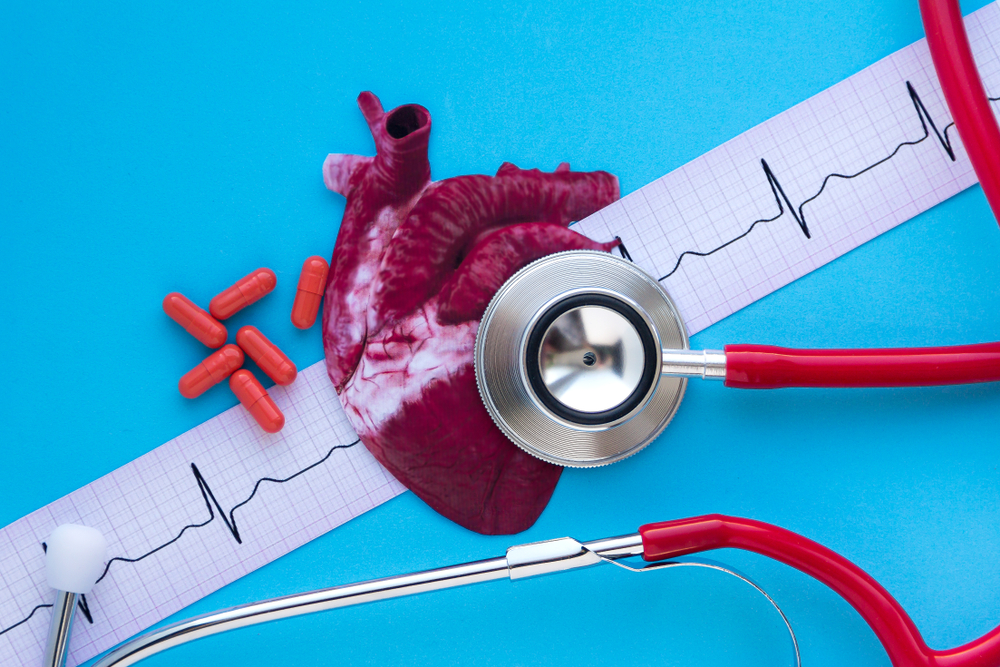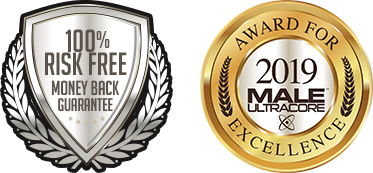Did you know that hypertension can make you impotent? Unfortunately, certain medications that help control your blood pressure can also contribute to erectile dysfunction, which further confounds the problem.
ACE or angiotensin-converting enzyme inhibitors and beta blockers are just two examples of medications that doctors often prescribe to help treat high blood pressure. Find out how these two anti-hypertension medications work, and which one is best for you.
Overview of Hypertension
Hypertension typically does not cause any overt symptoms. Your blood pressure should be 120 over 80 mmHG, but when you go over 130 over 80 mmHG, that is already high. Blood pressure higher than 180 over 120 mmHG is already considered dangerous.
When you don’t control your blood pressure and it does not go back down to the normal range, you can end up suffering from stroke, heart attack, and other heart diseases in the long run.
Uncontrolled high blood pressure can lead to atherosclerosis, which makes your blood vessels narrow and clogged. This further contributes to the problem since causes your heart to pump much harder in order to send your blood flowing through those clogged arteries.
ACE Inhibitors

Angiotensin II is an enzyme and one of its main functions is to make your blood vessels constrict. When you have high blood pressure, you need your blood vessels to dilate and widen so that more blood is able to pass through. ACE inhibitors basically prevent your body from synthesizing angiotensin II.
Examples of ACE inhibitors include ramipril, benazepril, moexipril, captopril, and enalapril. Although ACE inhibitors are widely prescribed for hypertension, they can also be used to treat other health conditions such as coronary artery disease, heart failure, and heart attack.
ACE inhibitors may also be used for diabetes, migraines, scleroderma, and certain types of chronic kidney diseases. The prescription may be in combination with other medications such as calcium channel blockers or diuretics.
Unfortunately, there are certain adverse side effects associated with ACE inhibitors and these include headaches, dizziness, fatigue, dry cough, loss of taste, and hyperkalemia or increased levels of blood-potassium.
Beta Blockers
Beta blockers also help to lower your blood pressure, although the mode of action is different compared to ACE inhibitors. Also referred to as beta-adrenergic blocking agents, beta blockers are called such because they basically block the effects of adrenaline, a hormone that’s also called epinephrine.
What happens when you take beta blockers is that your heart starts pumping with lesser force and beats more slowly, resulting in reduced blood pressure. In addition, beta blockers also help your blood vessels to dilate, thereby improving blood flow.
Examples of commonly prescribed beta blockers include metoprolol, acebutolol, propranolol, and atenolol. These medications help treat hypertension, heart attacks, angina or chest pain, arrhythmia or irregular heart rhythm, heart failure, and migraines.
Beta blockers are also known to cause several side effects such as weight gain, fatigue, and cold hands or feet. Depression, sleep problems, and shortness of breath are some of the less common side effects of beta blockers.
Which Anti-Hypertension Medication is Better?
Doctors usually consider your overall health and other underlying health conditions before they prescribe medication for high blood pressure. For instance, beta blockers usually aren’t prescribed to those with diabetes or asthma.
If you happen to have erectile dysfunction and you don’t want your sexual problems to worsen, your doctor will most likely recommend that you take ACE inhibitors instead of beta blockers.

Older generation beta blockers are actually notorious for causing erectile dysfunction. Studies have revealed that older generation beta blockers like propranolol are more likely to cause erectile dysfunction compared to the newer generation beta blockers like celiprolol.
Propanolol, atenolol, and carvedilol are associated with a higher incidence of sexual dysfunction. In previous studies, it was shown that men who took atenolol or carvedilol had a significantly reduced frequency of sexual intercourse during the period when they were taking the medication.
On the one hand, ACE inhibitors may actually benefit your erectile function. Aside from decreasing your production of angiotensin II, ACE inhibitors also lessen the degradation of bradykinin, which is a compound that helps promote the release of nitric oxide in the penis.
By increasing nitric oxide secretion in the penis, ACE inhibitors help you to be able to achieve penile tumescence. You need nitric oxide in order to get a hard-on because nitric oxide is the neurotransmitter that triggers cGMP production, as well as smooth muscle relaxation in the penile corpora cavernosa.
Hence, if your purpose is to manage your blood pressure while maintaining normal erectile function, you should discuss these concerns with your doctor to see if ACE inhibitors are indeed the right medicines for you.
There are actually other classes of medicines that can also help you manage your blood pressure, and your doctor may prescribe those instead of ACE inhibitors or beta blockers. Alternatively, your doctor may also recommend a combination treatment.
If your doctor happened to give you a prescription for a diuretic medicine, and you’re supposed to take it in combination with an ACE inhibitor or beta blocker, you should definitely inform your doctor about your erectile dysfunction concerns.
Diuretic medications such as chlorthalidone are actually known to have adverse sexual side effects, whether used in combination with other anti-hypertension medications or as a stand-alone treatment. In fact, there have been reports that the incidence of sexual dysfunction is higher in men taking diuretic medications compared to those taking atenolol.
The Bottom Line
It’s very important that you should manage your blood pressure well, not only to protect your heart health but also to keep your blood vessels healthy and to prevent erectile dysfunction.
Although you may feel embarrassed to tell your doctor about your sexual health problems, you should make sure that you discuss this with your doctor so that he can be guided in giving you the appropriate medication for your hypertension. Hopefully, your doctor will give you a prescription for an anti-hypertension medication that doesn’t cause impotence.







